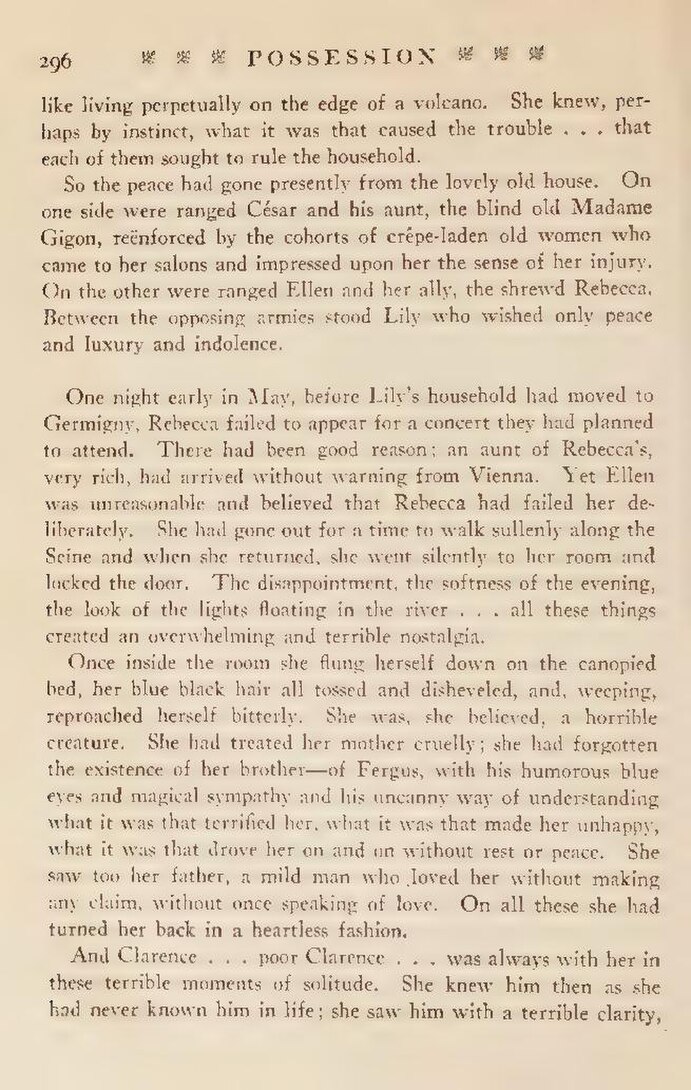like living perpetually on the edge of a volcano. She knew, perhaps by instinct, what it was that caused the trouble . . . that each of them sought to rule the household.
So the peace had gone presently from the lovely old house. On one side were ranged César and his aunt, the blind old Madame Gigon, reënforced by the cohorts of crêpe-laden old women who came to her salons and impressed upon her the sense of her injury. On the other were ranged Ellen and her ally, the shrewd Rebecca. Between the opposing armies stood Lily who wished only peace and luxury and indolence.
One night early in May, before Lily's household had moved to Germigny, Rebecca failed to appear for a concert they had planned to attend. There had been good reason; an aunt of Rebecca's, very rich, had arrived without warning from Vienna. Yet Ellen was unreasonable and believed that Rebecca had failed her deliberately. She had gone out for a time to walk sullenly along the Seine and when she returned, she went silently to her room and locked the door. The disappointment, the softness of the evening, the look of the lights floating in the river . . . all these things created an overwhelming and terrible nostalgia.
Once inside the room she flung herself down on the canopied bed, her blue black hair all tossed and disheveled, and, weeping, reproached herself bitterly. She was, she believed, a horrible creature. She had treated her mother cruelly; she had forgotten the existence of her brother—of Fergus, with his humorous blue eyes and magical sympathy and his uncanny way of understanding what it was that terrified her, what it was that made her unhappy, what it was that drove her on and on without rest or peace. She saw too her father, a mild man who loved her without making any claim, without once speaking of love. On all these she had turned her back in a heartless fashion.
And Clarence . . . poor Clarence . . . was always with her in these terrible moments of solitude. She knew him then as she had never known him in life; she saw him with a terrible clarity,
